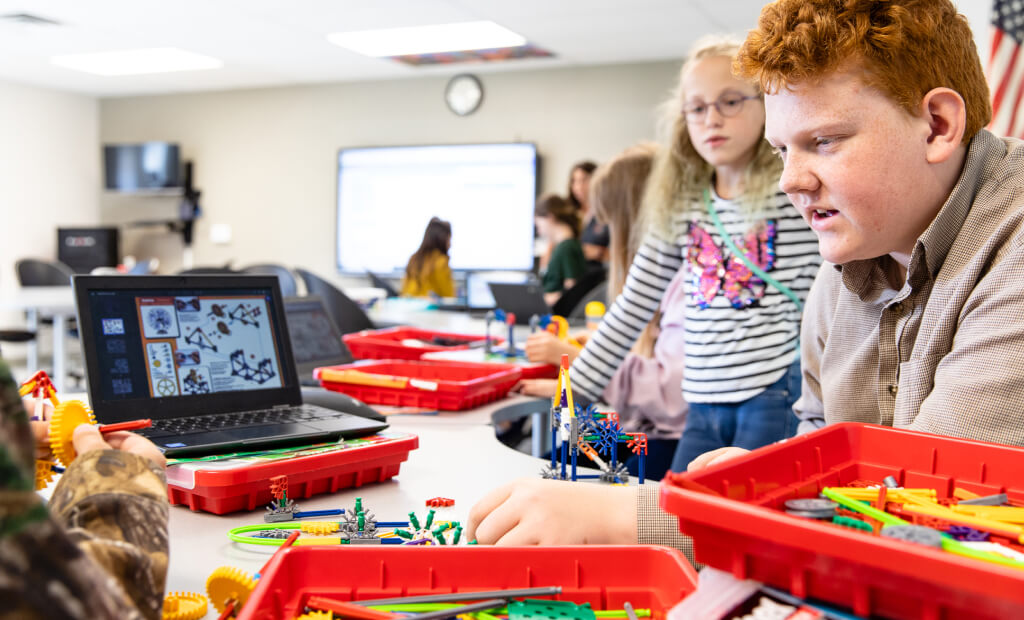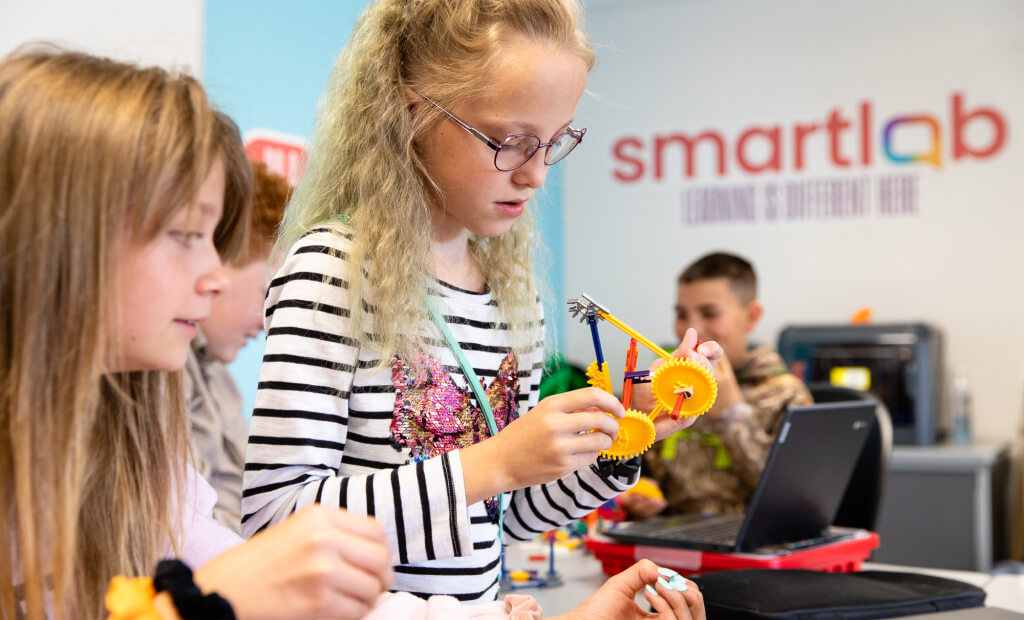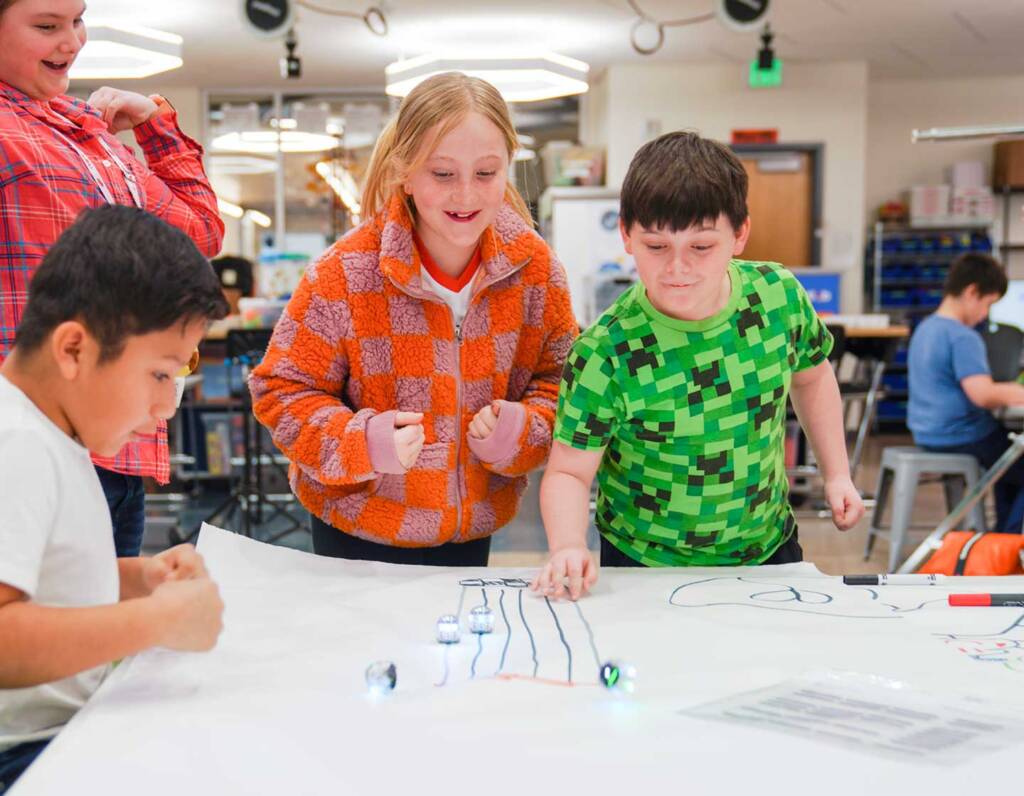Engagement is Foundational to Any Learning Outcome
Thirteen-year-old Allison was on the verge of tears. It was November and she did not want to go to school only to sit through another boring science class. No matter how many times she tried, she just couldn’t grasp why she needed to know things like why “the mitochondria is the powerhouse of the cell.” Why did she even need to take science? It wasn’t like she was going to be a biologist anyway.
Does that sound familiar?

As a young middle school teacher, I had students like Allison who struggled to find relevance in what they were required to learn. That struggle often led to lower levels of engagement and even disruptive behavior. It was clear that my disengaged students were missing out on important learning experiences.
School achievement outcomes so often depend on engagement and motivation. What was I doing wrong?
Here are two considerations among many:
Students need context.
In many more traditional classrooms, students learn in silos. They memorize content and show understanding by answering multiple choice or short answer questions about contrived situations.
You know the drill.
Providing context surrounding the knowledge and skills that students are building gives them a reason to apply themselves in that endeavor. When they know the why, they become much more invested in the what and can begin to figure out the how without the need for constant guidance along the way.
In the SmartLab, your students are presented with challenges linked to real-world contexts every day. While all SmartLab projects are designed to connect to future careers and further education, you can help students recognize contexts more relevant to their current experiences with some thought-provoking questions:
- For K-2 groups learning robotics using Code and Go Colby, you might prompt them to connect their coding of the robot mouse to how they navigate throughout the school or their neighborhoods. You could ask them, “What steps do you have to follow to get from the SmartLab to the cafeteria? Can you create a program to help a new student find their way?” The relevant context of finding their way in the school setting can help young learners understand how learning to code a fun robot can help them in other areas.
- For Middle School groups struggling to engage with measuring the attributes of light using Vernier sensors, consider guiding them to approach their project within a context relevant to them. You might ask them, “Why do you think that some objects get hotter in the sun than others? What kinds of materials would you use to help keep our school or your home cooler in the summer or warmer in the winter?”
Some other project-based learning example challenges to try:
- From Food Desert to Food Oasis (How can we make healthy food easier to get?)
- White Water Rafting (What forces sink or float a boat?)
- The Paper Airplane Challenge (What makes an airplane fly farther, straighter, or longer?)
The Extend Yourself sections of each project starter often provide a specific challenge and context using the technology and skills focused on in the main project activities. Skipping ahead to the Extend Yourself section might be just what some students need to engage in their projects.
Students need confidence.
How often do we adults still struggle with feelings of inadequacy? We so often undervalue our own experience and knowledge. Students experience this too.
To empower students to approach challenges and engage with more confidence, we can help them recognize and value the knowledge and skills that they already have along with what they learn. In the early grades, we regularly praise learners for the little things they learn and do, giving them boosts of confidence to continue to learn more.
I see that every day with my own 4-year-old as he draws and colors, striving to write his name on each page. Even though there are six or more horizontal lines on every letter E, we emphasize that he knows what an E is and applaud the budding skill of writing that he is practicing.
For our older SmartLab Students, how can we activate the knowledge they bring to each project? How do we appreciate and celebrate the skills they already have before they sit down with something new?
Rather than focusing on what they don’t yet know or can’t yet do, help your students approach novel challenges with their existing strengths. Ask them, “What have you done in the past that can help you with this project? How is this challenge similar to what you did over the summer?”
By celebrating the knowledge and skills that students bring to the SmartLab, you can help boost their confidence to engage them in their projects and in school.
Context + Confidence
Without context, students like Allison will always wonder if it matters that “the mitochondria is the powerhouse of the cell.” Without confidence stemming from an appreciation of their existing knowledge and skills, students will always approach new challenges with a deficit mindset.
Students who value their prior knowledge (their own contexts) and see a relevant challenge engage at school, and they learn to engage in their communities to find meaningful solutions to the challenges they face in the world.
Where have you seen your students find relevance and purpose in their work? Do you have examples of challenges that students found motivating or examples of students who found leverage in their prior experience? If you’re a SmartLab facilitator, please share your experience here in the Facilitator Facebook group. You never know who you might help!





